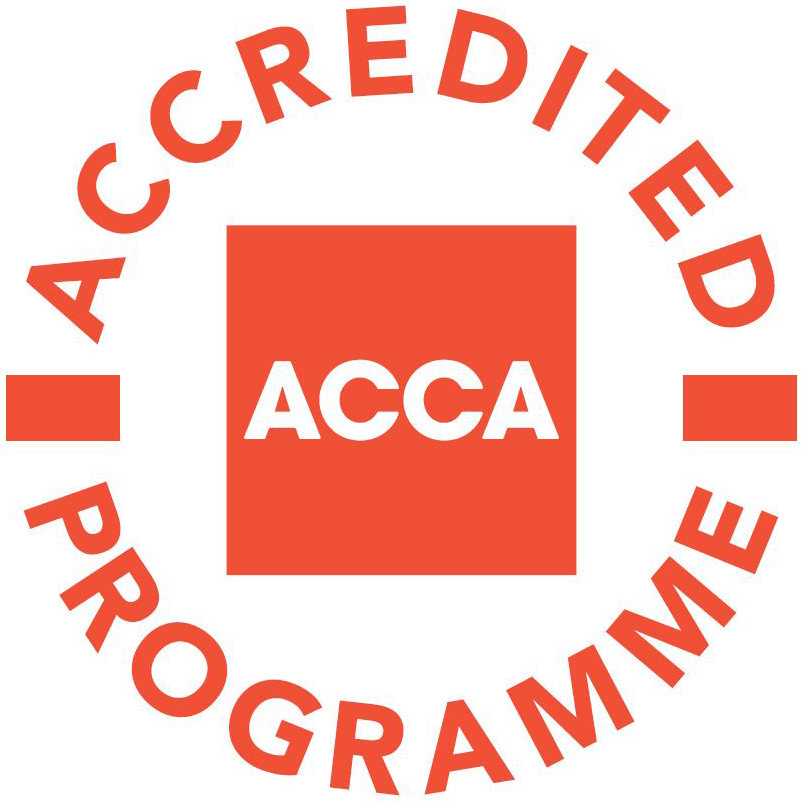Why choose APU?

Dual Degree
APU-DMU Dual Degree Programme
Latest Technologies
More Than Just A Diploma
APU’s Diploma in Accounting is powered by FinTech. This programme comprise modules in Financial Technology (FinTech). Being the first university to offer undergraduate programmes related to FinTech in 2018, APU is the pioneer FinTech educator at both Undergraduate and Postgraduate levels in Malaysia.
Diploma in Accounting Programme comprise modules in Financial Technology (FinTech)
Diploma in Accounting Programme comprise modules in AccTech
Requirements
Admission Requirements
- 3 Credits in at least 3 subjects at SPM level including Mathematics, with a minimum of a pass in Bahasa Malaysia and Sejarah (History);
- 3 Credits (Grade C & above) in at least 3 subjects at IGCSE/O-LEVELS including Mathematics;
- 3 Credits (Grade B & above) in at least 3 subjects in UEC including Mathematics;
- Pass relevant Certificate Programme or its equivalent;
Note: The above entry requirements may differ for specific programmes based on the latest programme standards published by Malaysian Qualifications Agency (MQA). The qualification and entry requirements for the programmes will be determined based on the “Comparison List of Equivalency of International Qualifications with SPM (O-Levels equivalent) and STPM (A-Levels equivalent)” published by Malaysian Qualifications Agency (MQA).
- IELTS : 5.5
- TOEFL IBT : 46
- Pearson (PTE) : 51
- MUET : Band 4
Programme Outline
What We Teach
This APU Diploma in Accounting is designed to provide:
- Students with relevant knowledge and skills to follow a career in accounting, business or finance.
- Students with intellectual, communications and team working skills.
- Students with FinTech knowledge and technical skill relevant to accounting.
- Students with opportunities for progression into studies at degree level in relevant areas.
- Opportunities for students to pursue professional qualifications from professional accounting and financial bodies.

Association of Chartered Certified Accountants (ACCA)
This programme is accredited by ACCA with 3 papers exemption.
-
Semester 1
In this semester, students will be equipped with basic IT skills as well as Design Thinking skills with Digital Innovation.Throughout the duration of the study, students will be exposed to various terminologies and basic concepts related to business managerial skills. These skills are imperative for a smooth transition into the following semester.
Modules
- Digital Thinking and Innovation
- Academic Research Skills
- Managing Business
- Practical IT Skills
Semester 2
The modules Professional Communications and Quantitative Methods are offered in this semester; to help further develop students’ knowledge and skills significantly with emphasis on aspects that are core to the study of accounting. Students are also exposed to information system in accounting where students will practice AIS applications for strategy and operational decision making.
Modules
- Financial Accounting 1
- Accounting Information System
- Professional Communications
- Quantitative Methods
Semester 3
This semester moves students from the basic accounting concepts and procedures to more advanced topics in financial accounting. There are also modules in related subjects such as Economics, Marketing and Business Statistics which will expand the knowledge and efficiency in solving problems and make decisions in different areas of business.
Modules
- Financial Accounting 2
- Business Economics
- Business Statistics
- Integrity and Anti-corruption
- Marketing
Semester 4
The modules in this semester are aimed to expose students to the latest financial accounting and cost accounting concepts, techniques, trends; and issues in financial accounting and reporting. These modules are targeted to enhance the application skills of students in a higher level of accounting related areas. Students are also exposed to Financial Systems and Fintech and Fundamentals to Entrepreneurship.
Modules
- Fundamental of Entrepreneurship
- Business Law
- Financial Systems and FinTech
- Financial Accounting 3
- Cost Accounting
Semester 5
The final semester allows students to progress into more advanced areas of Accounting and Taxation. Graduates experience a balance of accounting theory and practical applications with integrated computer technologies and are expected to be able to demonstrate cognitive and intellectual skills with techniques in business management, information technology, finance and accounting. Students will also be exposed to an understanding of Auditing concept; associated with elements such as the usage Big Data, Artificial Intelligence and Robo Auditing.
Modules
- Financial Accounting 4
- Basic Taxation
- Principles of Banking and Finance
- Introduction to SAP ERP System in Accounting
- Principles of Audit and Technologies
*In addition to the above, all students are also required to successfully complete General Studies modules as stipulated by the Malaysian Qualification Agency, as well as fulfill credit requirements for Co-curricular activities.
Further Studies
Upon successful completion of this programme with CGPA of 2.5 & above and fulfilment of requirements for credit transfer, you will be eligible to progress into Level 2 of the following degree programmes offered at APU.
- Bachelor of Accounting and Finance (Honours)
- Bachelor of Accounting and Finance (Honours) with a specialism in:
- Forensic Accounting
- Forex and Investments
- Accounting Technology
- Bachelor of Arts (Honours) in Business Management
- Bachelor of Arts (Honours) in Business Management with a specialism in:
- E-Business
- Digital Leadership
- Bachelor of Arts (Honours) in International Business Management
- Bachelor of Arts (Honours) in Marketing Management
- Bachelor of Arts (Honours) in Marketing Management with a specialism in Digital Marketing
- Bachelor of Arts (Honours) in Human Resource Management
- Bachelor in Banking and Finance (Hons)
- Bachelor in Banking and Finance (Hons) with a specialism in:
- Investment Analytics
- Financial Technology
For the full listing of our Diploma Programmes, please refer to the Pre-University programme brochure.
















